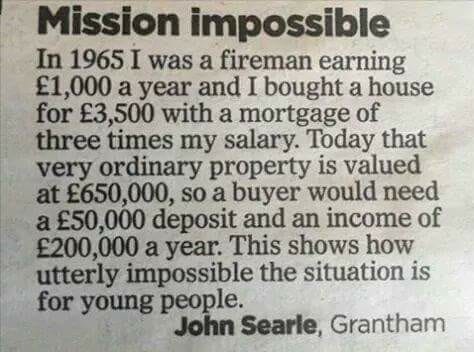The city reboot for 2070 that we should start TODAY, part 1: WHY do it
as a relative of mine would say, things can and must only get better from here...
UPDATE 2023/06/07: Part 2 is here, go read it after this one: “The city reboot for 2070 that we should start TODAY, part 2: HOW to do it”
N.B: I’ve stopped caring about Substack’s ridiculous warnings that “Post is too long for email”. Just click “Open in browser” to read this online, please. You’ll like it, I promise.
Premise
City planning that makes sense may be the most important challenge of our time, because more than four billion human beings live in cities today, and two more will join them in just twenty years. Besides, if it has to work for us who are alive today, while we are still alive, it cannot start too soon.
Here, I make a bleak, apparently hopeless summary of certain bubbles already afflicting many cities worldwide, or coming to them relatively soon. Starting from there, in the second part I will sketch some proposals to plan and manage apartments, buildings and whole cities that may make their neighborhoods much more livable than today, and I don't mean only slums.
1. Urban bubbles so far


The oldest and, for many living urbanites THE most urgent city problem since they can remember (together with mobility of course), is the housing bubble. That would be the thing that leaves thousands of empty homes everywhere, from UK to Japan, but in ways that would take more than 70% of a full-time minimum wage salary to rent the smallest ones. Smart homes, these are not, and this is a bubble that will explode badly, for the reasons below and many more, and too soon, as far as the topic of this article is concerned:

Then came the warehouse bubble, of which the italian region of Veneto is a good example: in a radius of about 80 km around Venice there is one "capannone industriale" (industrial warehouse) every 54 residents but 12% of those capannoni are abandoned, either beyond repair or worth 30% less than a decade earlier. I am reasonably sure that aging of both workforce and buildings, together with automation and the sheer inertia of globalization, has already caused or will cause similar problems in or around many cities worldwide:

Then, when urban homes were already too expensive and urban warehouses already worthless, e-commerce and other factors started popping qnother bubble, namely the one that may leave american cities with "just 150 shopping malls by 2032", and similar situations everywhere else. Rumor has it that, in and outside the US, only the shopping malls that CAN "find millions to reinvent themselves" will survive, by becoming "more experience-driven and less shopping-centric". IF, as with the capannoni, that reinvention happens before they rot so much that it becomes cheaper to just bomb them:
Finally, after homes, factories and shops, the last big thing that makes of any city a real modern city became a bubble: the office. After a century of masking the previous bubble by filling whole buildings with "managers and a bewildering assortment of all-purpose paper pushers", the default of two big "Office Landlord" american companies in March 2023 may be just "the beginning" of an "office real estate apocalypse", that by 2030 may leave empty (and worth 40% less than today) more than 30 million square meters of office space in the US alone. Such a shame cannot happen, of course. The millions who discovered through COVID that telecommuting makes them, if not their managers, both happier and more productive must stop telecommuting NOW, to save both real estate prices, and none other than poor Amazon. Explaining how this will keep said workers motivated to do the wonderful jobs that Artificial Intelligence will leave to us, is left as exercise for chatGPT:
Calls to kill two or three birds with a stone, that is to convert offices to apartments, are very trendy now , but often unfeasible. As explained here, most modern warehouses or office buildings just lack the amount of plumbing and raw strength needed to support all the extra walls, pipes, furniture, air conditioning and so on, that filling them with apartments would entail. Not if, that is, the goal is apartments that are affordable AND nice enough to overcome the apartment phobia that DOES contribute to the housing crisis. The other solution, that is destroying those buildings to make new ones, has other problems that I will discuss in the second part.
2. The next bubble(s)
All these pleasantries of city life that I have listed so far may be soon be obscured by at least three, already accelerating bubbles, each caused by something that is "falling".
Falling People
The first thing that is falling is People. Populous or not, most cities in the industrialized world will not just have too many old residents vs all the others. They will have them way too soon to function as they pretend to do today. Italy is aging so fast that in 2070 there may be, mostly in cities, "2.2 million italians more than 90-years old, with "huge healthcare expenses". The Japanese are aging so fast that they have already started to robotize everything they can, from nurses for the elderly to priests, to keep their cities going. Chinese cities may follow. Basically, every city will have, by tomorrow as far as responsible planning is concerned, a much larger percentage of residents than today with some combination of reduced mobility, less money, bigger healthcare needs and even bigger loneliness problems.
Everybody should respect voluntary childlessness, if nothing else because bringing into the world someone you (not climate change, cost of living or wars) may make miserable more and sooner than anybody else because you did not really want her... would not be good, would it now?
But I bet you anything that, if cities remain the non-places they are today, thirty years from now a non-negligible part of the young people voluntarily childless today will, if not regret their choice, as a minimum be sad that all their friends had had the same idea.

Migrants to keep the rest of "the economy" going are another issue that I will discuss in the second part. Looking only at loneliness now, importing "caregivers" in any form, including marriages of convenience, would just outsource depression. Like here in Italy, where, in order to assist lonely italian elders, many thousands of Romanian women lived or live "like under house arrest, far away from their families.
Non-human solutions will be either unfeasible or unviable at scale, for all possible mixes of economic and ethics reasons. Robots may give elders who can afford them a hand to jump out from the bed every morning, not reasons to do it. Pets?

If the indecent race to spend on pets as much as on babies continues, they'll become something like Pablo Escobar's "cocaine hippos", that is something only the really rich can afford, likely in the wrong way. But with any luck (for the pets, that is) many people may have concluded that keeping a pet is "fundamentally unethical", at least for the great majority of urban pets.
Falling Places

The second bubble that will explode is that of Falling Places, that is all the urban centers situated in what may become, for whatever mix of reasons, "ridiculously fragile locations [that] No amount of techno-magical thinking is [going go fix]". Like Jakarta: 10 million people, all sinking so fast that they are relocating the whole capital 1200 km away, starting next year. Besides Jakarta, many other cities everywhere may become unlivable well within our lifespans, for essentially two reasons: too much heat or, like Jakarta too much water. The first problem is already making almost impossible to work outside in some cities, and may get bad enough in the future to make staying alive impossible, in others. Even without such extreme consequences, heat may make the risks and consequences of fires bad enough, from California to Australia and maybe everywhere else, to make every home around their paths pretty hard to sell, rent, or inhabit without anxiolytics.
Back to water, about 15M italians , 127M americans and a few more billion human beings live in coastal cities, that is within spitting distance from water that may rise just enough, quickly enough to make their children's future homes, if not their current ones, mouldy or worse before they're fully paid. Mortgages and rents aside, even today, Americans already cannot _"buy flood insurance in broad swaths of New Jersey or Florida [or] fire insurance in Orange County, California".
Falling Stuff
Finally, even the cities whose places are not falling will have both Falling People and Falling Stuff to worry about. By Falling Stuff I mean all the venues and infrastructures that will become stranded assets, that is stuff either unusable or unnecessary, but also too expensive to keep, and even more to dump, or repurpose in any way. Among other things, this includes:
"The most frightening aspect of our dependence on concrete", that is the fact that the vast majority of the structures made with it won't last and will need to be replaced "relatively soon" (said in 2018)
Aging garage buildings that may collapse even earlier, if filled with the same heavy Electric Vehicles that everybody should buy now. If they had the money
thousands of residential buildings that, once totally or partially emptied by speculation, deindustrialization and other reasons will become rotten shells, too expensive to refurbish if they stay empty too long
Much of what is connected in one way or another to fossil fuels
The last point, discussed in detail here, is simple to explain: from gas stations to fuel depots, there is a lot of infrastructure that will become stranded assets quite soon, whatever happens. That is, not just if oil becomes too expensive to dig, with all the troubles this implies, but also in the opposite, best possible scenario, the one where renewable energies, batteries made with more lithium that there is on Earth and banishment of the Jevons Paradox from our reality make all that infrastructure unnecessary.
Summarizing...
The very personal, most likely future of most humans alive today including you and me (that is yesterday, as far as "planning at the right moment" goes) is the one where you, me and some billion other people, on average less wealthy and healthy than today, have some decade to spend more or less packed in the middle of cracking urban systems, under weather that those systems were never intended to withstand.
As a relative of mine would say, "Good. Starting so low, things can only get better". I agree, don't despair. We can still live long, and do it in cities, enjoying rather than regretting it. How that may happen, is the topic of the next article. For now, I leave you with two requests, one from you, one from me:
What? No more bubbles??? What about crime, structural racism, air pollution, family-hostile neighborhoods, sprawl, etc etc...? Answer: Of course those are serious problems, but the proposals you'll find in the next issue should also deal with them.
If you like what you read, please do consider upgrading to a paid subscription, or supporting (here is how, and here is what others think of it) my other work on the same issues . The more YOU do so, the less I need to pay the bills with less important work!
CONTINUES HERE.








You asked me on my substack to look at this. I haven’t forgotten you, but I am consumed by what is happening in Gaza now. As I’ve written, hard to focus on building the future in place when a people’s place is being bombed to hell. You are in my reading list.
Well written and carefully thought out...